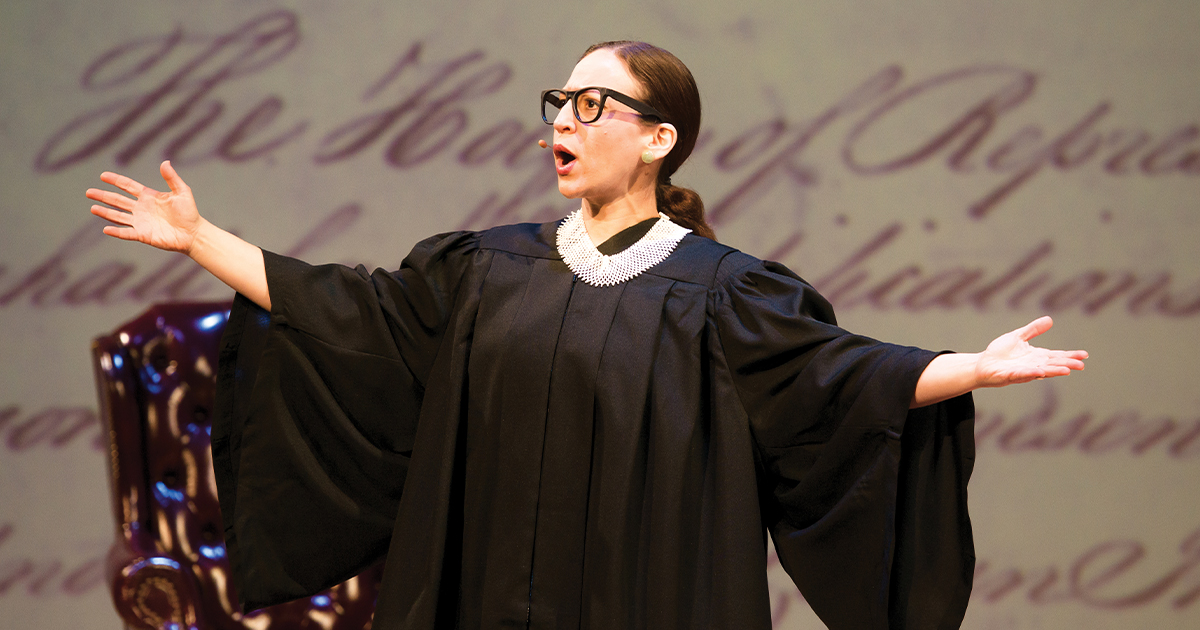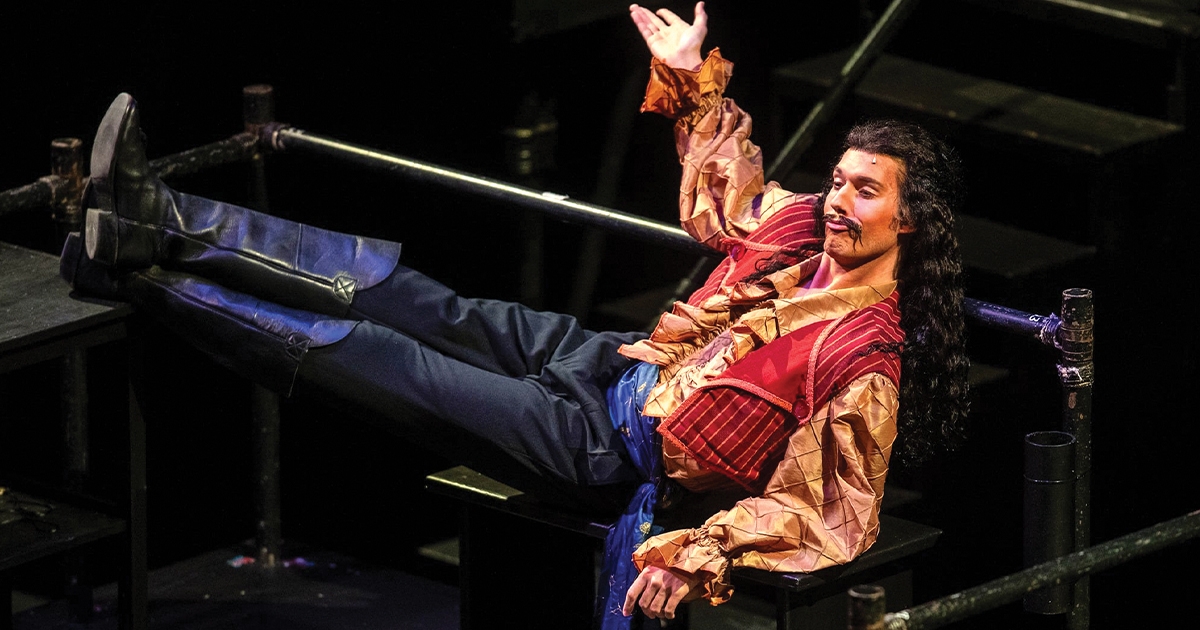How Opera GR is going above and beyond staying afloat.
How many arts organizations have navigated the pandemic more deftly than Opera Grand Rapids?
The realities of March 2020 could easily have led to the cancelation of its Scalia/Ginsburg production. Instead, within six hours of determining to film and stream the show, the team had completed negotiations, secured funding, and set the (metaphorical) stage.
“I think we were the first company in the country to pivot to a virtual production,” said Emilee Syrewicze, executive director. “I haven’t been able to find anything that suggests otherwise.”
Rather than a hastily assembled Zoom recording — as could have been expected from the circumstances — Opera Grand Rapids delivered a genuine show: a funny, powerful and moving show, made with sincerity and skill. “Our patrons were awed that we pulled it off,” Syrewicze said. And more people paid to stream it than would have shown up in-person.
Even more, the successful staging of a modern opera proved that there was a place for contemporary works, and opened the door to more in the future: Operas from more diverse viewpoints than in the past.
Back in late March, it was still possible to believe that we could soon flatten the curve and return to normal life. A certain reviewer — modesty forbids me from naming him — wrote in The Rapidian that he hoped to attend Turandot in person, in May.
May came without Turandot (too big, too soon) but Opera Grand Rapids stayed active. Cosi Fan Tutte was performed live to a small, socially distanced crowd; and it was also broadcast at Fifth Third Ballpark, perhaps the least obvious venue for opera this side of a Tuffy.
“It was a little different, but it worked! It was fun. We’ve approached this year as one for experimentation.”
Starting March 19, Opera Grand Rapids will stream Penny, a new opera by Douglas Pew. It centers around an autistic woman, and is set entirely in her family’s apartment. Penny is not a representative of autistic people; she is herself, and the opera honors that individuality.
“Doug has been very good about getting us a two-week window and letting us sell (tickets) nationally. Theoretically, we could sell internationally. Rarely do companies get to do something like this.” She plans to reach out to not just the local autism community, but the national community.
A look at the cast brings forward an important point: opera has changed, or is changing. The cast is diverse and youthful, far from the opera stereotype of rich elderly whites.
April 30th will bring Second Nature, a dystopian tale in which climate change has devastated the planet. The opera follows two young people who seek to go outdoors, and touches on humanity’s relationship with nature.
The plan is to stage the opera outdoors at Millennium Park. That park, like the opera, benefitted from the largesse of Peter Secchia.
“We miss Peter so much,” she said. “He was passionate about education. To honor him, we’re working with Joan to offer two special daytime shows to GRPS kids at no cost. And we’ll work with music teachers on a curriculum in the weeks prior to that.”
Beyond that, Syrewicze foresees the return of grand opera: Big, heart-swelling productions with large casts and unmasked singers. “There’s nothing like live. Live beats it all.”
But virtual will continue to have its place. “I see tremendous value in it. For a large number of people, it’s not possible to physically attend, or be comfortable at, a live performance. We want to return to live, in-person shows with vigor and excitement, but we want to also keep a virtual component, as much as our budget allows, so we can eliminate the barriers.”
And she’s proud of the work that’s been done. “It’s been difficult, but our company’s been really excited and motivated by the challenges. We didn’t think about closing for one second. We never threw our hands up.”

OPERA GRAND RAPIDS
operagr.org
Penny, March 19 - April 2
Second Nature, April 30 & May 2





